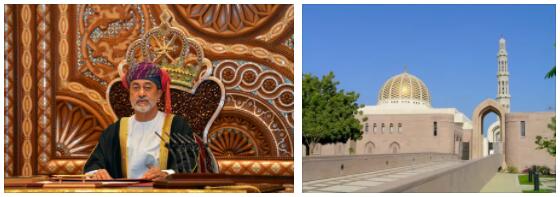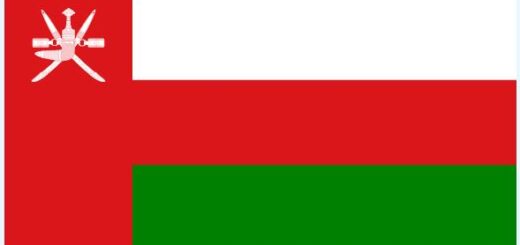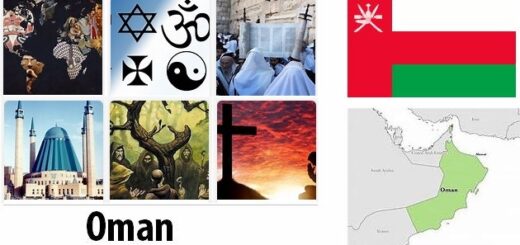State Structure and Political System of Oman
The Sultanate is an absolute monarchy. All legislative and executive power belongs to the head of state – the Sultan, who heads both the legislative and executive branches of government. Power is inherited (through the male line). The Basic Law (Constitution) 1996 is in force. Check equzhou for political system of Oman.
Administrative division: 8 districts, including 59 vilayets (provinces) headed by walis (governors). Districts: Muscat, El-Battana, Musandam, Ed-Dakhira, El-Dakhiliya, Ash-Sharqiya, El-Wusta, Dhofar. The largest cities: Muscat, Salal, Nizwa.
The Shura Council (Majlis Ash-Shura) is the legislative body that develops recommendations to the Sultan in matters of the economy, social sphere, ecology, culture and education. Political matters do not fall within its competence.
The body of executive power is the cabinet of ministers. Sultan Qaboos retains the posts of Prime Minister, Minister of Foreign Affairs, Minister of Defense and Minister of Finance. The Cabinet is formed directly by the Sultan.
There is a bicameral deliberative body – the Council of Oman, consisting of the Shura Council (82 members) and the State Council (Majlis ad-daula) (48 members). The Shura Council is formed by the Sultan from among candidates elected in 59 provinces for a period of 3 years with the right to be re-elected for subsequent terms. Women can also apply for membership in the Council. The main task of the Shura Council is to represent the interests of the provinces and communities before the government and to inform the provincial leadership about the state’s plans for activities in the periphery. The composition of the State Council (the first session took place in January 1998) is also appointed by the Sultan for 3 years. This body decides on amendments and proposals proposed by the Shura Council. Check homeagerly for democracy and human rights of Oman.
An outstanding political figure in Oman is Sultan Qaboos bin Said (born November 18, 1940). A direct descendant of the founder of the Al Bu Said dynasty, Imam Ahmad bin Said. The Sultan is a recognized leader whose name is associated with Oman’s historically significant throw from the Middle Ages into a post-industrial society. The Sultan carried out a reorganization of the political system, contributed to a change in social psychology and major shifts in the way of life of the people.
There are no political parties in Oman. The leading business organizations are: the Omani Chamber of Commerce and Industry and the Center for Investment Promotion and Export Promotion.
Domestic policy is aimed at social development and ensuring economic growth, at the creation of a production infrastructure and the improvement of intra-economic and inter-industry relations on the basis of a technological shift.
Foreign policy pursues the goal of increasing the authority of Oman as an active partner of other states in regional and international affairs. The Sultanate maintains diplomatic relations with 135 states. The main place in foreign policy is occupied by questions of participation in the activities of the GCC, with which Oman coordinates its foreign policy actions.
The armed forces of Oman consist of a regular army (three types of troops: Land, Air Force and Navy), as well as the Royal Guard and other paramilitary forces. There is no conscription in Oman, the army is formed on a contract basis. The total strength of the Armed Forces – St. 40 thousand people (2001). In service are 29 ships of various types, more than 300 tanks and approx. 30 fighters, in addition, combat helicopters and S-130 military transport aircraft.
Oman has diplomatic relations with the Russian Federation (diplomatic relations between the USSR and Oman were established in September 1985).



